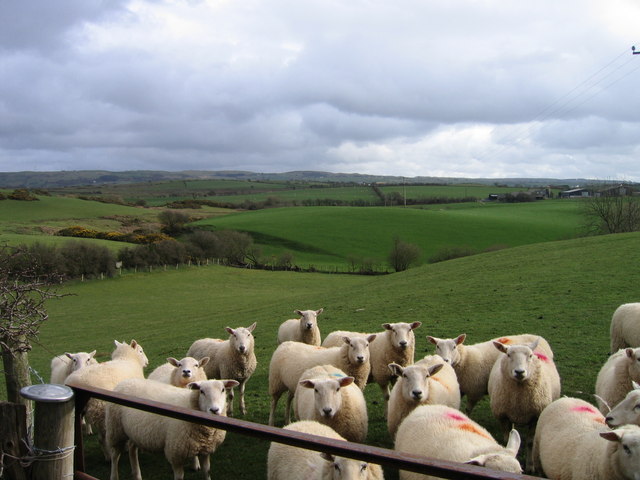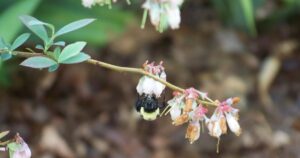
sheep farming.jpg
Certainly! Here’s the next article:
Sheep Farming: Raising Sheep for Wool and Meat Production
Definition:
Sheep farming involves the husbandry and management of domesticated sheep for various purposes, including wool production, meat production, and landscape management. It encompasses a range of production systems, including extensive grazing on pasturelands, intensive feeding in feedlots, and specialized breeding programs, each tailored to meet specific production goals and environmental conditions.
Fall off the barn roof and busted your keister? Life on the farm or ranch can be tough on the bum. Need a break? Laugh it off at FarmerCowboy.com, the #1 farm humor site. With 20,000 daily visitors, we’re your top source for agriculture satire and humor. Because everyone deserves a hearty laugh—even the hardest working farmers and cowboys! Join us and turn those long days into fun tales at FarmerCowboy.com.
Informative Details:
Sheep farming is a traditional and versatile agricultural activity that provides valuable products and services to society. Sheep are raised primarily for their wool, which is used in textile manufacturing, and for their meat, which is consumed by people worldwide. Additionally, sheep grazing plays a crucial role in maintaining grassland ecosystems and managing landscapes for biodiversity, soil conservation, and fire prevention.
Valuable Assistance:
Sheep farming offers numerous benefits for farmers, consumers, and the environment, including a sustainable source of wool and meat, employment opportunities, and ecological services such as vegetation management and habitat restoration. Sheep products are valued for their quality, durability, and versatility, making them essential components of various industries, including fashion, textile, and food.
Beneficial Guidance:
Sheep producers can benefit from a variety of resources, technologies, and support services available to improve their management practices and enhance sheep production efficiency. From sheep extension programs and research institutions to industry associations and cooperative networks, there are numerous opportunities for sheep producers to access training, information, and expertise to help them succeed in sheep farming.
Actionable Suggestions:
- Breeding Management: Select and breed sheep with desirable traits for wool and meat production, including wool quality, fleece weight, lambing ease, and carcass characteristics. Implement genetic selection programs, artificial insemination, and reproductive management strategies to improve flock genetics and productivity.
- Housing and Management: Provide sheep with comfortable and sheltered housing facilities that protect them from adverse weather conditions, predators, and disease transmission. Implement proper ventilation, temperature control, and waste management practices to promote sheep health, welfare, and performance.
- Nutrition and Feeding: Formulate balanced diets for sheep that meet their nutritional requirements for growth, reproduction, wool production, and meat quality. Utilize high-quality forages, grains, minerals, and supplements to optimize feed efficiency, minimize waste, and support sheep health and productivity.
- Healthcare Management: Develop and implement a comprehensive flock health management program that includes vaccination, parasite control, foot care, and disease prevention strategies. Work closely with veterinarians and nutritionists to monitor flock health, diagnose illnesses, and implement treatment protocols as needed.
- Wool and Meat Marketing: Identify and capitalize on market opportunities for wool and meat products, including specialty fibers, value-added products, and niche markets. Develop branding, marketing, and distribution strategies to differentiate your sheep products and meet consumer preferences for quality, sustainability, and traceability.
Helpful Content for Sheep Producers:
Sheep farming offers a rewarding and sustainable livelihood for producers seeking to produce high-quality wool and meat while stewarding the land and supporting rural communities. By adopting best management practices, embracing innovation, and prioritizing animal welfare and environmental sustainability, sheep producers can contribute to the resilience and prosperity of the sheep industry while meeting the diverse needs of consumers and society.
References:
- American Sheep Industry Association – Link
- American Lamb Board – Link
- Sheep & Goat Research Journal – Link
Originally posted 2016-06-12 23:40:18.
Originally posted 2024-07-09 02:13:00.
Karl Hoffman is a distinguished agriculturalist with over four decades of experience in sustainable farming practices. He holds a Ph.D. in Agronomy from Cornell University and has made significant contributions as a professor at Iowa State University. Hoffman’s groundbreaking research on integrated pest management and soil health has revolutionized modern agriculture. As a respected farm journalist, his column “Field Notes with Karl Hoffman” and his blog “The Modern Farmer” provide insightful, practical advice to a global audience. Hoffman’s work with the USDA and the United Nations FAO has enhanced food security worldwide. His awards include the USDA’s Distinguished Service Award and the World Food Prize, reflecting his profound impact on agriculture and sustainability.






